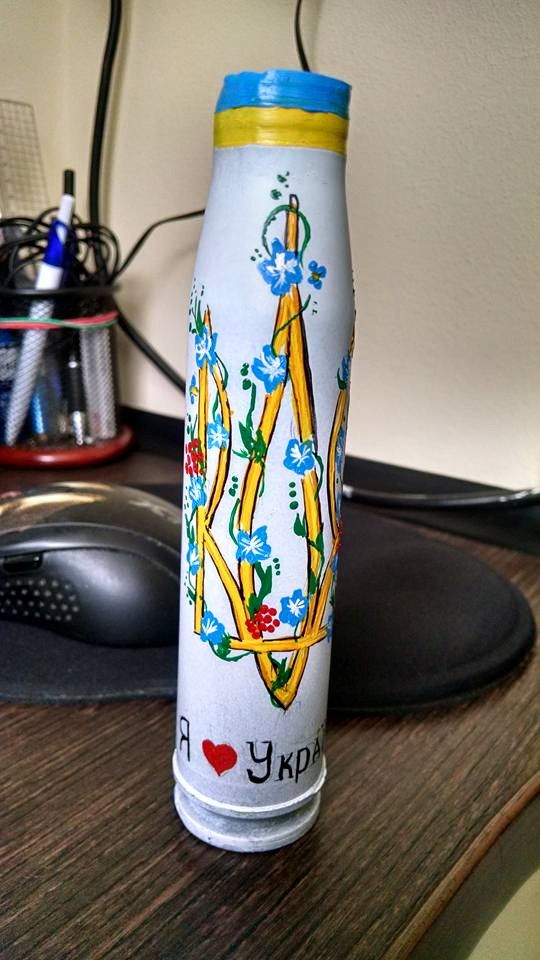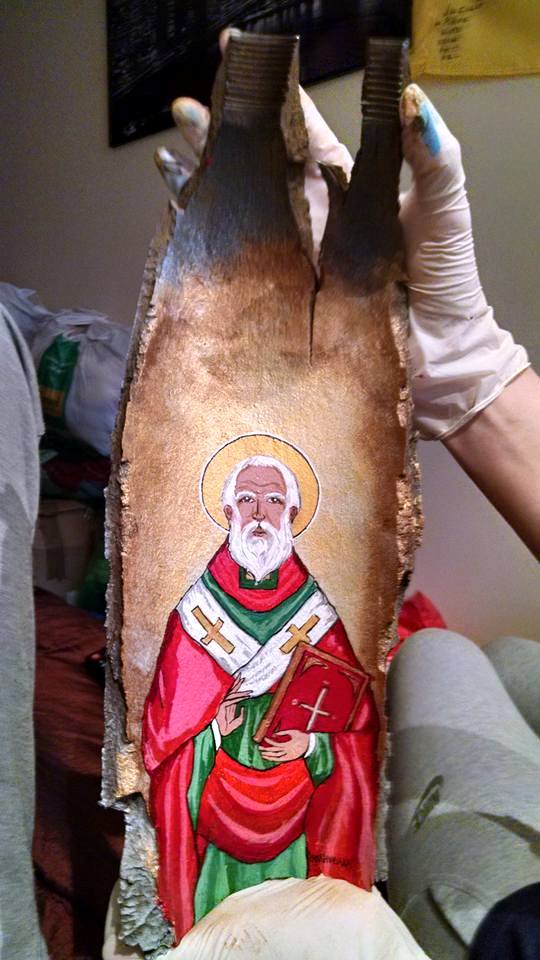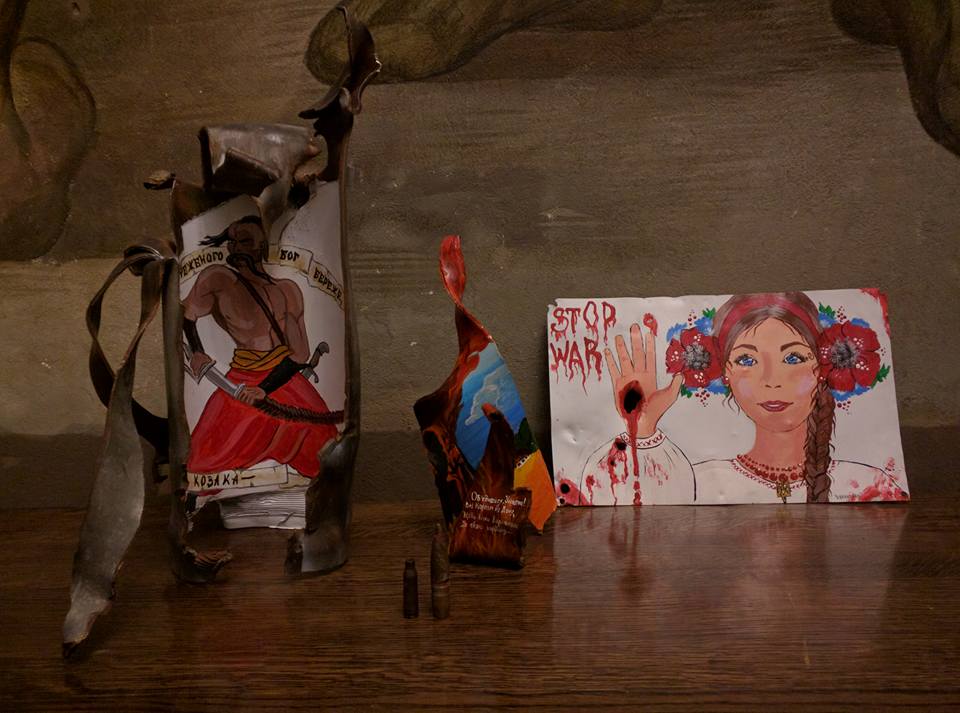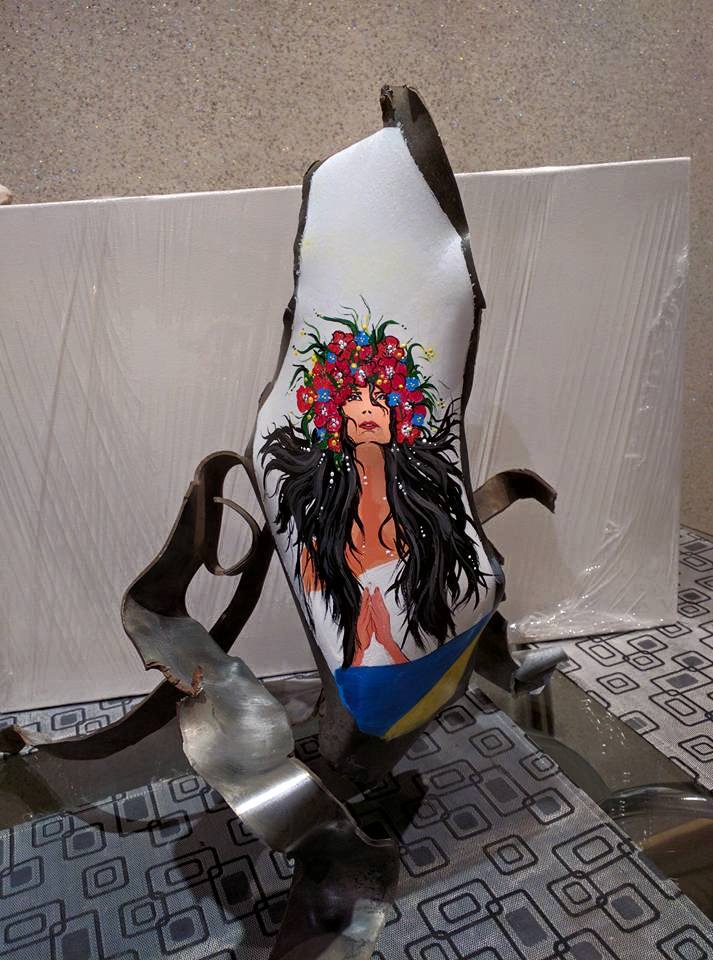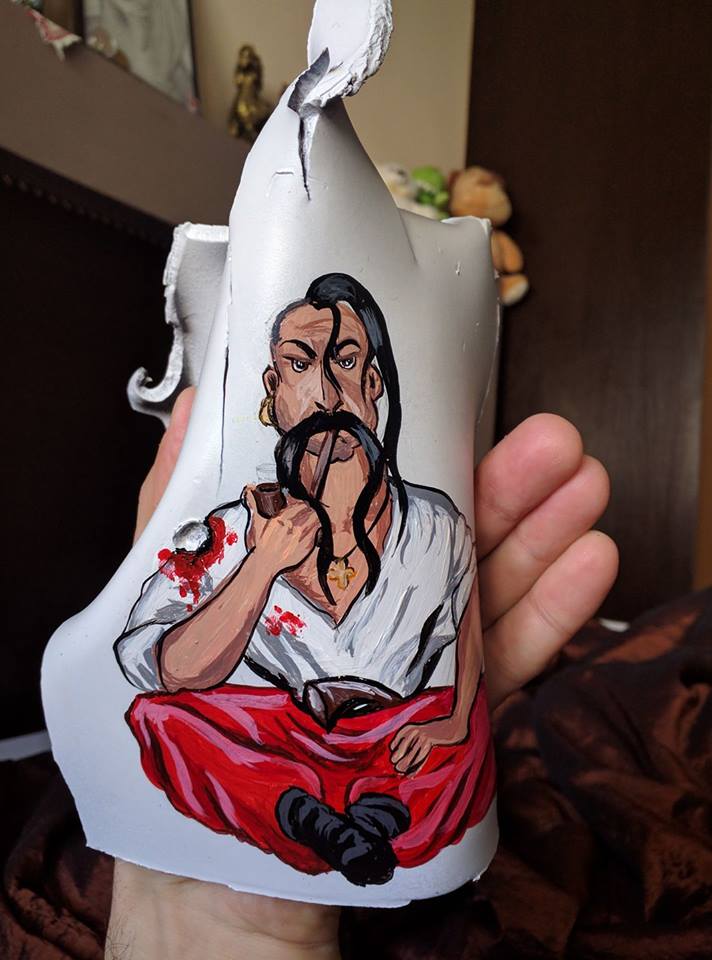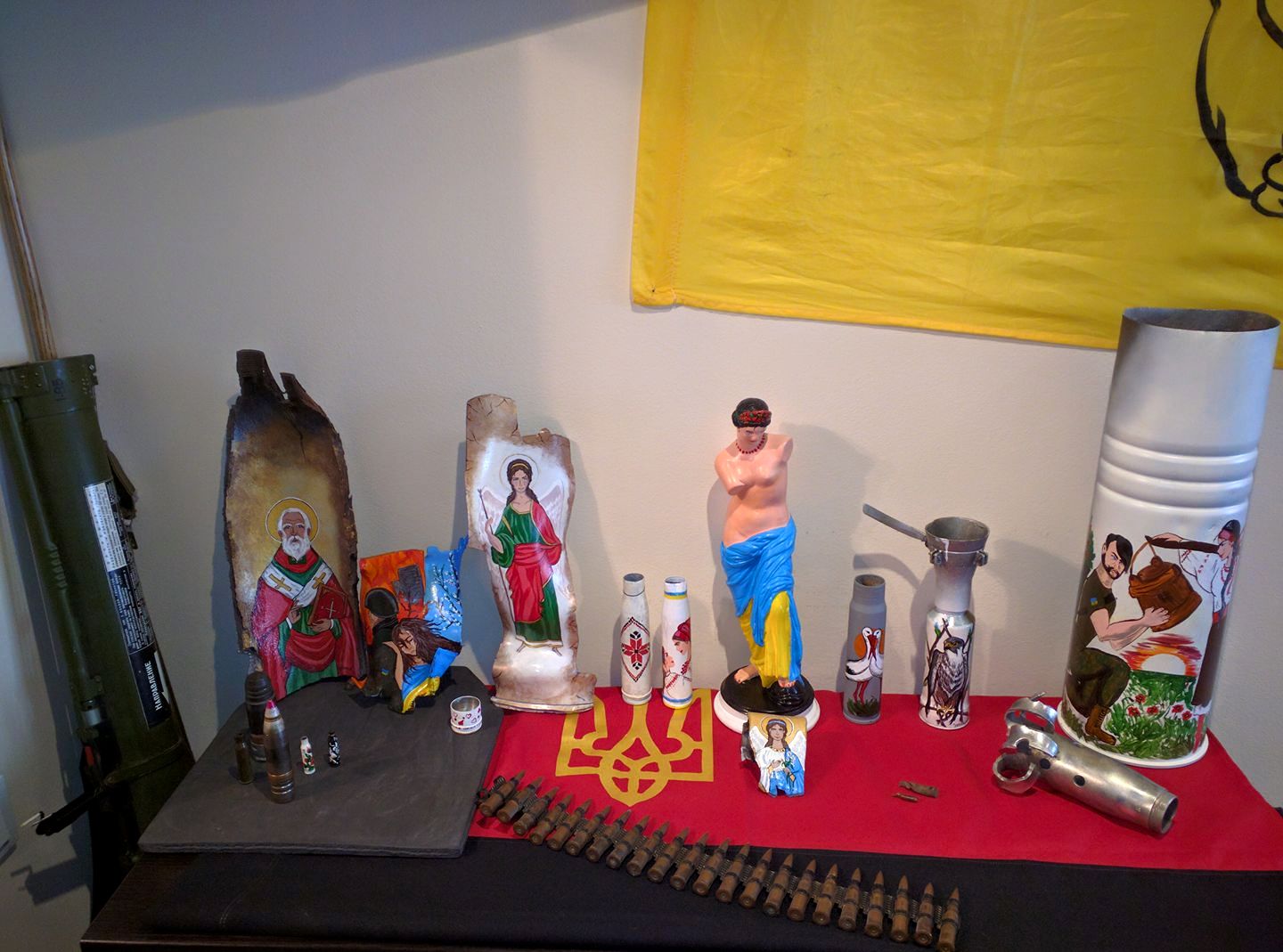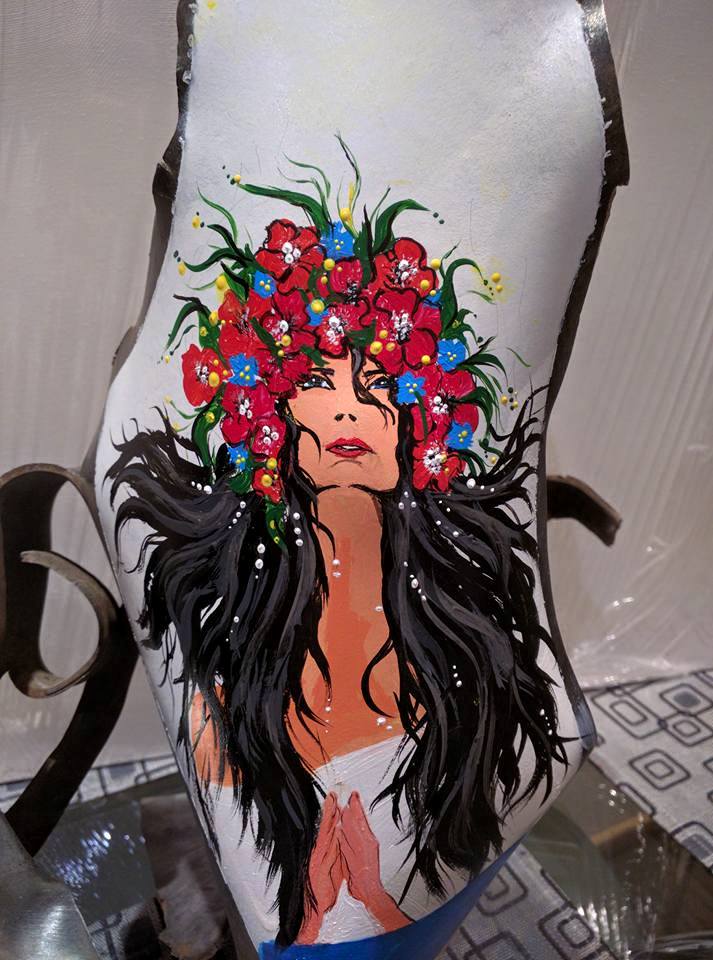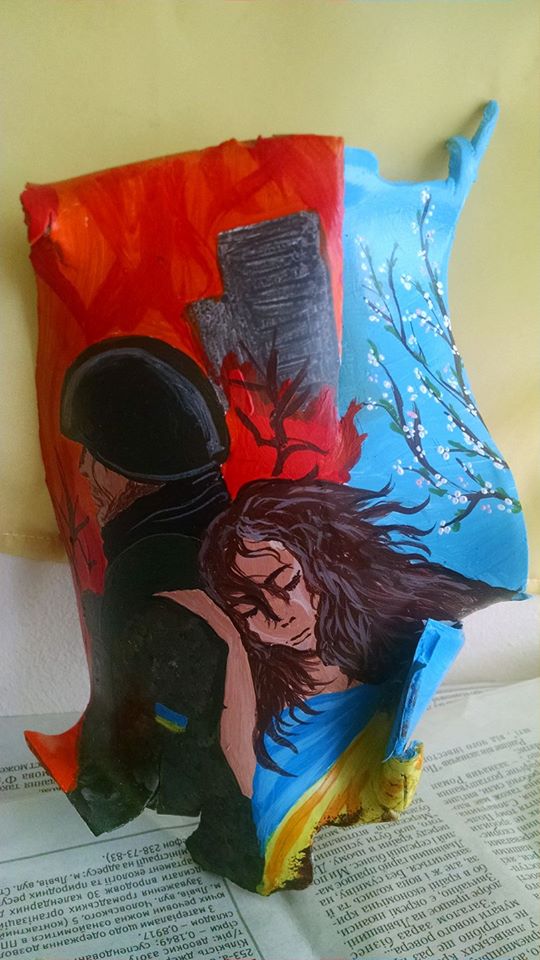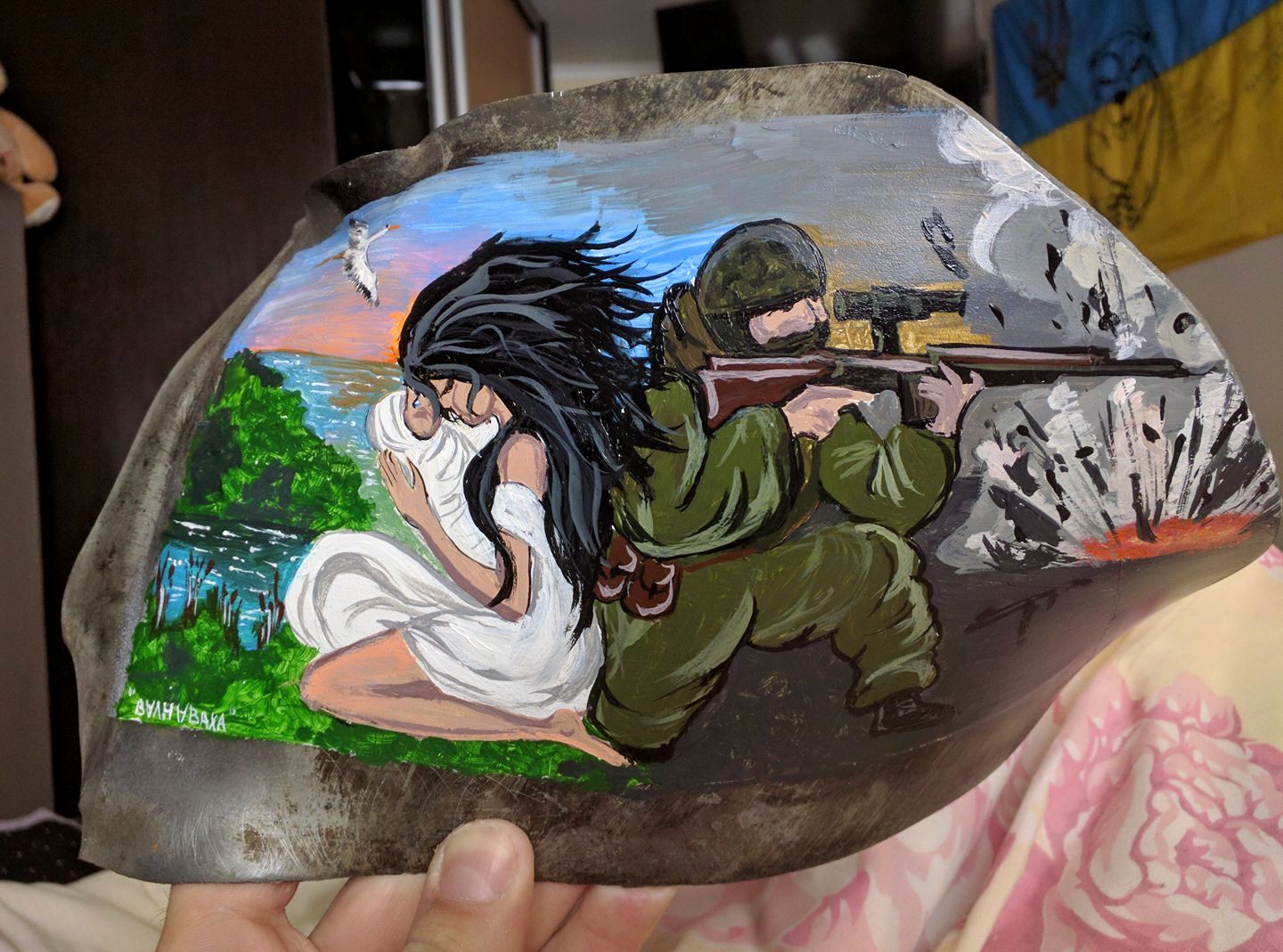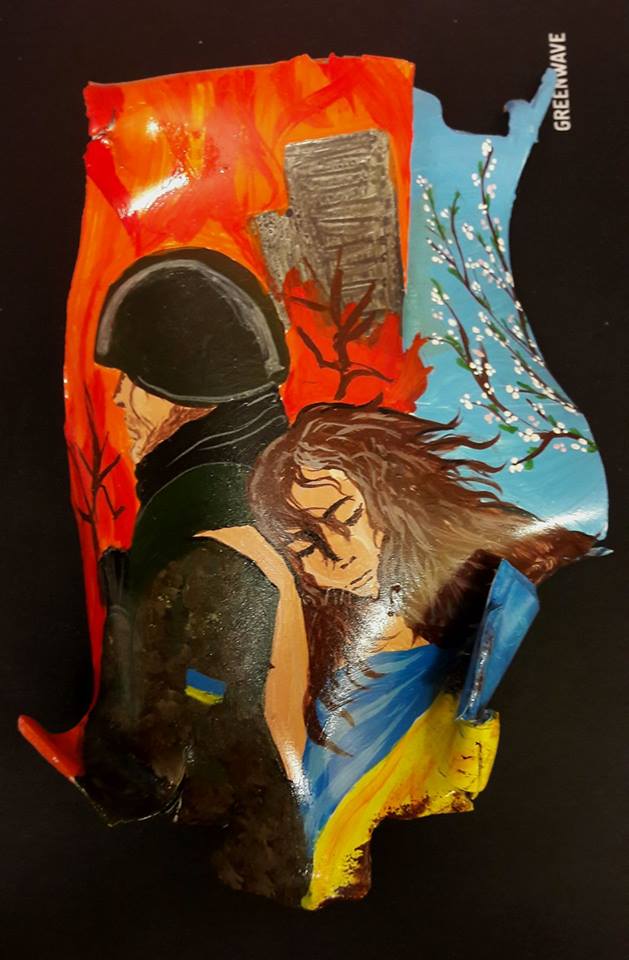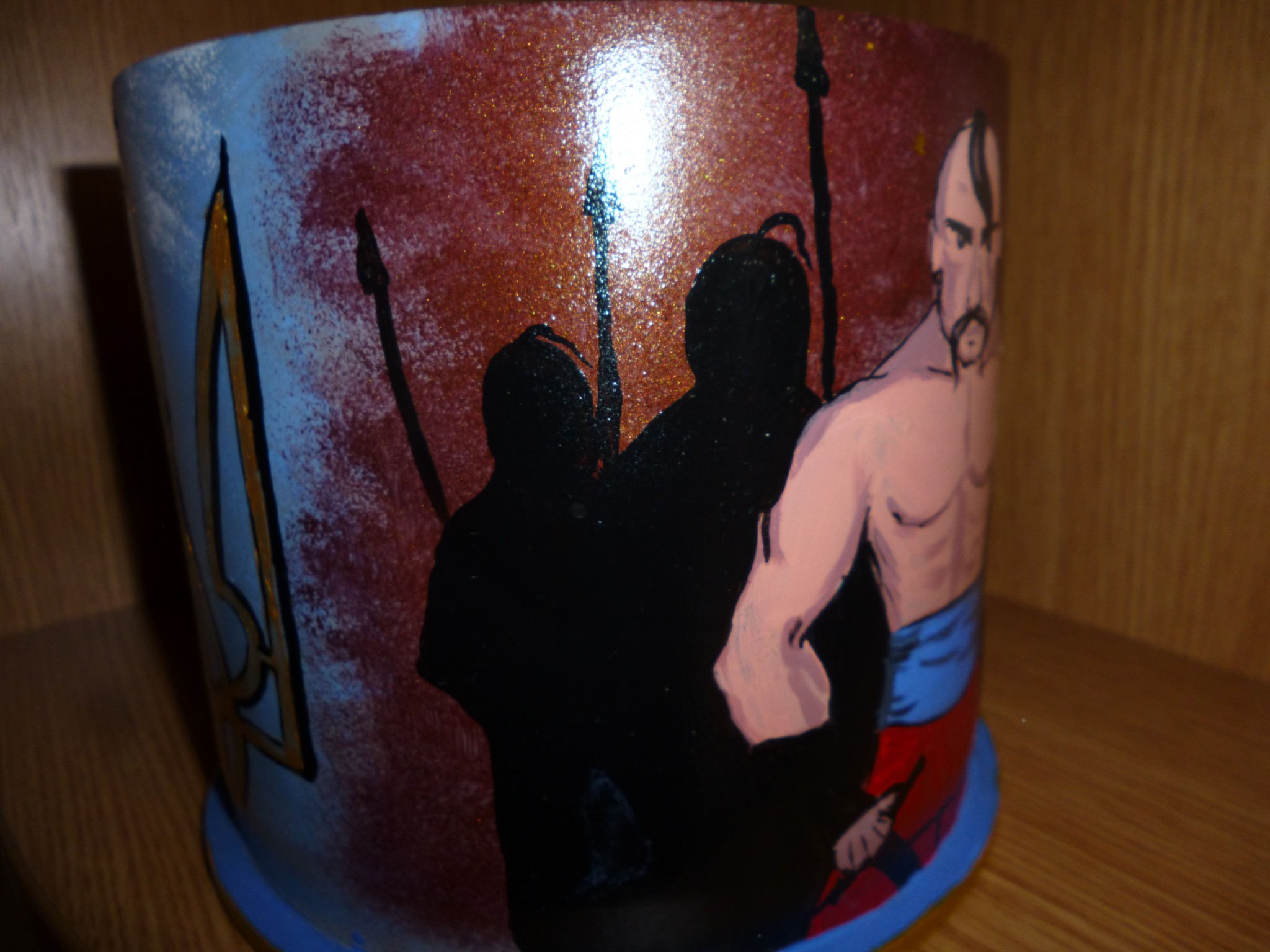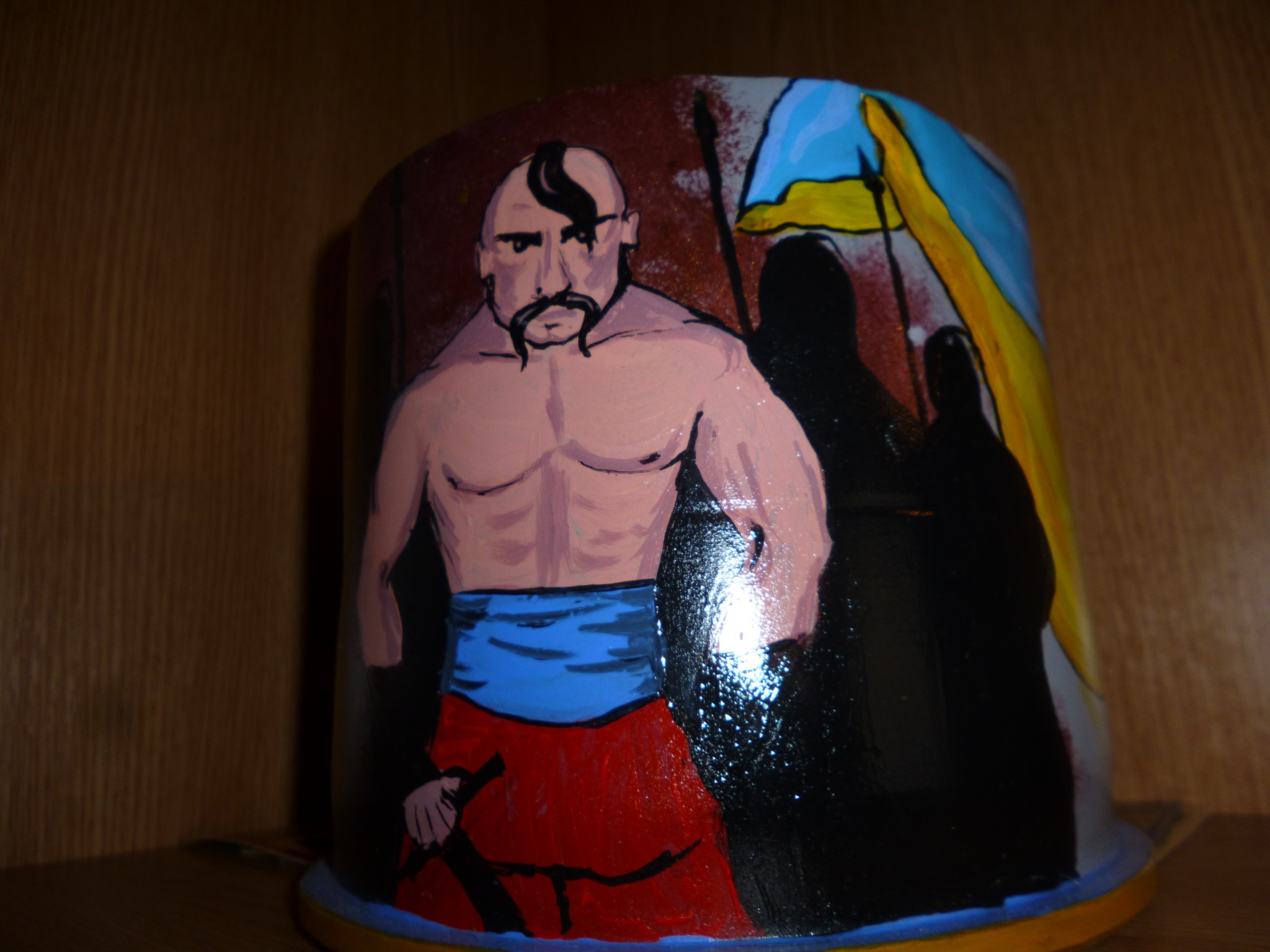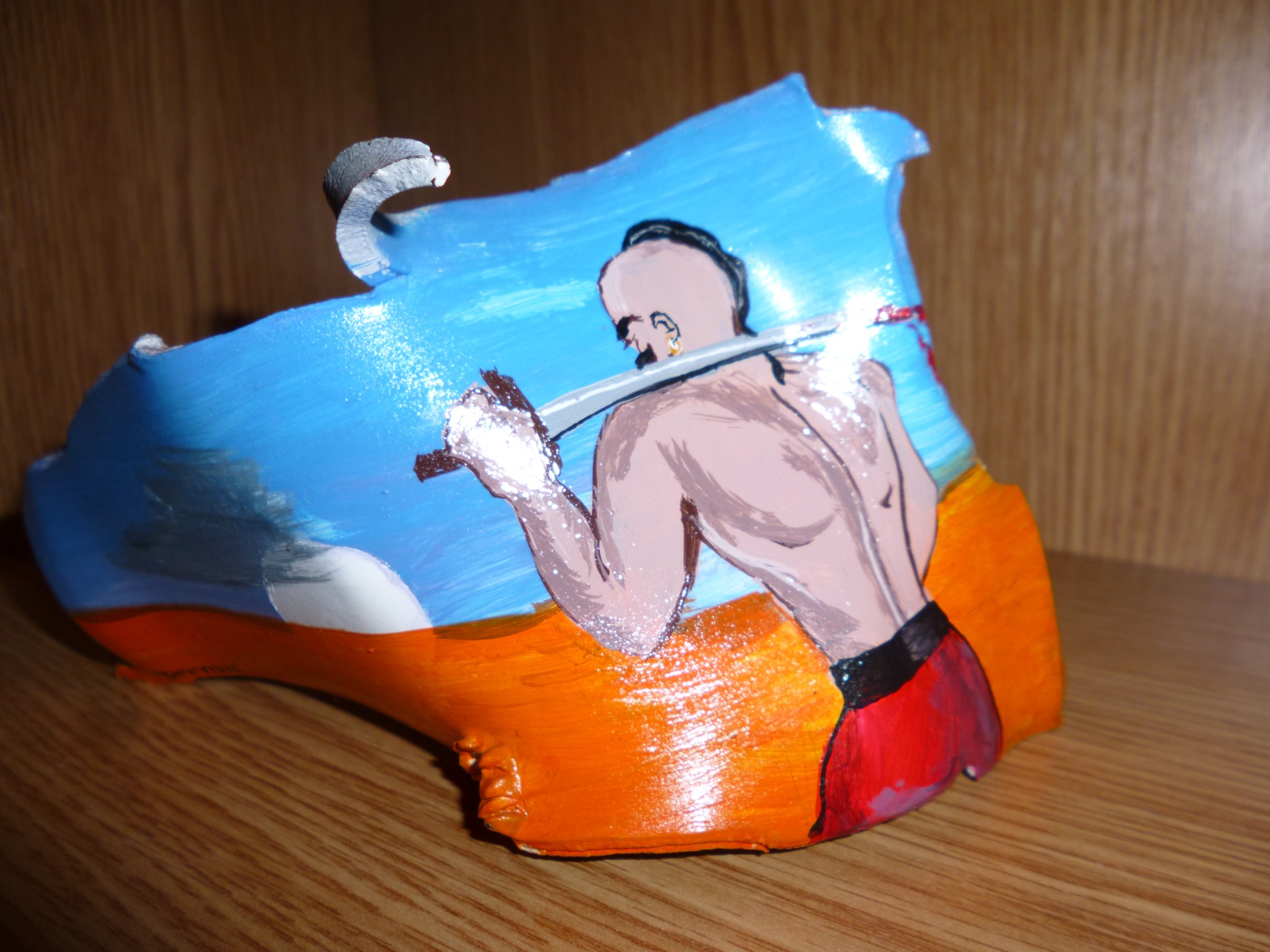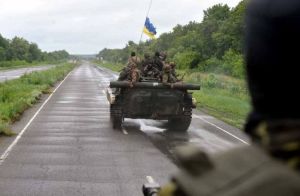East and West are united in the Ivaniv family. They have also joined their efforts against the occupation. Roman is active as a volunteer. He is from Lviv. Yevheniya is originally from Volnovakha. Roman brings pieces of shrapnel and empty shell casings with him on his return trips from Eastern Ukraine, which Yevheniya then transforms into works of art.
Yeheniya describes one artwork by stating that “here on this piece of shrapnel I’ve portrayed a soldier, a man who is defending his family and is protecting them from the Russian occupation”.
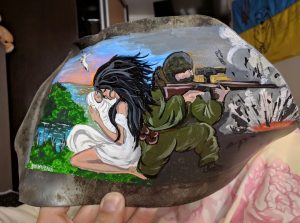
There is a tenderness to the artwork that she paints, a sincere love that renews one’s strength to continue in this battle, and to fight for peace. Simply stated, Yevheniya has seen this Russo-Ukrainian war first hand.
“The impression one has when you’re physically far away from Eastern Ukraine is that the war seems distant, that it’s only on television. For me, however, the war is being fought in my very home.”
Roman describes his work as a volunteer, and how he has been making these humanitarian trips to the East for several years now. He buys and delivers items for the soldiers: everything you can think of, like socks and clothes and generators and spare parts for vehicles… and presents for young children in the surrounding villages for St. Nicholas Day.
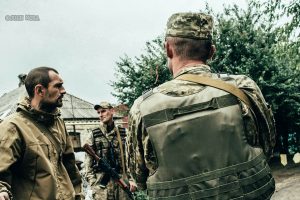
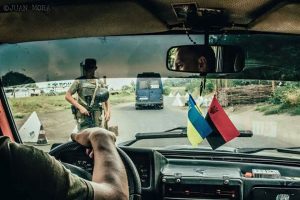
The Ivaniv home is full of souvenirs of appreciation from soldiers and civilians alike. Roman Ivaniv describes some memories of his volunteer trips:
“One time, we had to stay in Starohnativka for several days. It was winter and I couldn’t travel. So there I was, a civilian, given a weapon which I was unfamiliar with. At night I could feel mice running all over me. When I finally made it home, Yevhenia asks me, “Would you like something to eat?” I hold out my hands and answer, first let me get all this cleaned off . That one night was really bad, one I’ll never forget.”
The two of them met in a rather unusual manner, as if something out of a movie. It was a year and a half ago, at a time when the central coordinating body for the anti-terrorist operation wasn’t in the habit of informing volunteers which villages were off limits to travel because of the threat of shelling. Roman then tells us how he met Yevheniya:
“I was looking for a contact to help me in Volnovakha, to tell me whether it was safe for me to go there. On social media, VKontakte and in Russian, no less, I came across the profile of a lovely and enchanting young woman. In her photo, she was wearing a very nice Ukrainian blouse, not scared of the fact that she was practically living in Donetsk. There was even a Tryzub embroidered on her clothes. And that’s how I met Yevheniya.”
Roman and Yevheniya were married a month ago. A few days later, instead of going on a honeymoon, they left on another journey to Eastern Ukraine. Yevheniya remembers:
“We were gone for a week, first to Volnovakha and also near Avdiivka. I have family still living there. I had hoped to see them and Roman had this trip planned so I asked him to take me with him.”
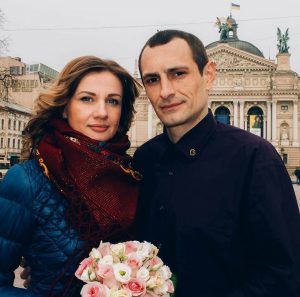
Roman uses a well-worn bag from his trips to the warzone, damaged and torn from exploding shells. He says that eventually he will sew it back together as a remembrance of brotherly love, so that in the future his family can see what kind of “love” Russia is showing Ukrainians.
What Yevheniya is accomplishing is the transformation of once-deadly shrapnel into sacred items. They have already found their way to Spain, Portugal, and Canada. One work of art is also now back in Eastern Ukraine, in the village of Tonenke, which suffered during the bombardments. Yevheniya shares her memories:
“Shell fragments crashed through into a house where people were living. Roman brought it back with him and said: “I’d like to make a present for these people. Let’s turn this into something positive.” The image I painted on it is of a guardian angel. I was worried about how it would be received, because of the harm it originally represented for them. During that shelling their neighbour was killed. But they liked our gift.”
Anyone who buys one of these artworks is also helping to fund the needs of soldiers on the front lines. Any requests can be PMed to Roman on Facebook.
“Localities in Eastern Ukraine that have suffered from the war now have farm equipment like combines, tractors and cultivators are working in the fields, so these relics will soon disappear into the ground or begin to rust. These fragments of war are valuable teaching tools for our children and grandchildren.” adds Roman.
Wedding and frontline photos: Juan Mora


